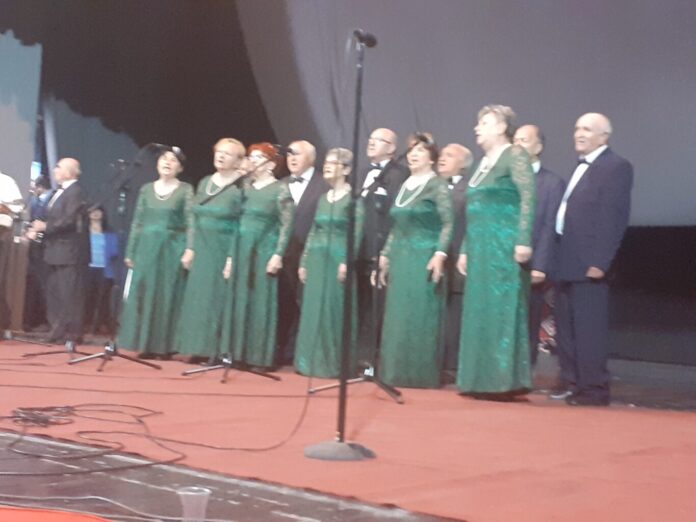Literary critic and royal jail, spy and clarvial of domestic socialism. A tumultuous life

It was called « Red Spy », « Bolshevik Classionary », Constantin Dobrogeanu-Gherea from whose birth is celebrated today, May 21, 170was anathematized by the Romanian communists. His theory over the « neo-Baga » flagrantly contrasts with Lenin’s claim to carry out socialism by an act of will, because he insisted on developing modern economic and social institutions before any socialist transformation.
Constantin Dobrogeanu-Gherea, the most important Marxist thinker in Romania of the 19th century.
On his real name Solomon Katz, Gherea had a very adventurous life. He was born in 1855 in Slavianka, near Ekaterinoslav, in Ukraine today, in a family of Jewish traders. The Katz family was part of the average class of Russian society, his brother was a doctor, his father had a brewery near Ekaterinoslav. The faculty in Kharkov follows and in the years of study comes into contact with the Russian revolutionary movement with strong anarchist tendency. He took part in the so-called people, in 1874, a great action of the Narodnic and anarchist movement trying to propagate the revolution among the peasants through the students.
Followed by the Tsarist secret police as a Narodnicist activist, he is deported to Siberia. He escapes through Norway with another prisoner and arrives in the port of Vadzoe, from Norway, after a 15 -day journey full of adventures in the Arctic Ocean, on an fishing vessel. From Norway he travels to France, in Paris, and back to Romania, via Basarabia, in Iași and from here he arrives in Switzerland where he connects with the Russian revolutionary groups.
During the Russian-Turkish war of 1877-1878, Gherea volunteers at the Red Cross to divide radical literature to the Russian troops cantoned in the country. Using fake American passport, by the name Robert Jenks (Robert Jinks after other sources), opens a network of washers for the Russian army, in Ploiești, Braila and Buzău, through which he feeds the dissatisfaction of the workers who « wash the dirty linen of Russian capitalists ». An officer staying in the same dwelling as Gherea in Brăila becomes suspicious of the agitation around the house and alerts the Tsarist authorities.
An adventurer whose life would be worth exposed to film!
He returns to Romania and deals with the illegal trade with revolutionary literature he passes from Iasi to the Russian Empire. But at the same time it adapts to the Romanian space quite quickly and became a Romanian citizen in 1890,-supported with Fair-play by the opponent Titu Maiorescu-recalled Professor Paul Cernat-in a period when Romanian citizenship was conditioned by belonging to the Christian-Orthodox religion. It will take the name of Constantin Dobrogeanu-Gherea after becoming a literary critic and one of the founders of the Romanian Social Labor Democratic Party in 1893.
We find him on the streets of the cowards, looking for his meaning. It was just working on paving some streets. Offered his arms. For many weeks he had the Unirii Square at home, and as a head, at night – a gut of gravel « , the note, not without a wave of nostalgia, in the » call « of May 10, 1920, Constantin Graur, thus marking the (not easy) beginnings of Solomon Katz in inter -war Romania. Ambitious, trained and impetuous, the one who would take the name of Constantin Dobrogeanu-Gherea quickly learned the Romanian language, assisted by Ion Nădejde, then participated in the establishment of the first nuclei and socialist publications from us, in front of the Contemporanul Magazine (1881), to whom he will be a mentor.
« It will be followed by a good part of the idealist intellectual youth. During this period, the book translates the program from Erfurt, but at the same time tries to adapt Marxism to the completely different conditions in this agrarian periphery.
Polyglot and with a sharp spirit of observation, Constantin Dobrogeanu-Gherea has soon become a remarkable diagnosis of the Romanian social aspects in the rural area. He writes the neo -Job that will prove to be an inspirational book for all Romanian socialists.
Gherea is not a singular figure, it is a wider Romanian space in which it is tried for the left and socialism to be adapted to this large area of periphery in which Romania, but also the south of Russia, largely, the border areas between Europe and the Russian Empire. It is part of this higher current to rethink socialism under the conditions of peripheral and agrarian societies. The best known term that remained of it is neo-Băgie, the title of a fundamental book in the social sciences and in the social history of Romania. In the book, he responds to Constantin Stere, another former Narodnic, trying to show that a socialist thinking has its meaning and meaning, and even that it is the only progressive thinking that can exist in Romania.
Socialist ideas had to have a political meaning and their form of political expression will be the Social Democratic Party of the Romanian Workers in the founding of which Gherea also participated in 1893.
The Romanian Social Labor Democratic Party is a party that has problems from the beginning to the situation in Romania. First of all, the working class, as much as existed, did not have all the Romanian citizenship. There were many Jews, Hungarians, Germans, Romanian Transylvanians. Then there are currents of anti -Semitism among the workers that the Social Democratic Party tries to soften.
After all, the party collapses under the weight of the very strange situation in which Gherea was and does not want to enter into this collapse, especially as he as a Jew had just received Romanian citizenship. The solution it finds to enter the Romanian cultural mainstream is literary criticism and becomes one of the most important Romanian literary critics after the quarrel with Titu Maiorescu.
One of the most important Romanian socialists becomes known not by making party politics so much, not writing social treaties, although it does little, but writing literary criticism.
The kings of Romania, crazy after Ghere’s sarmales and cakes
In 1882, Dobrogeanu-Gherea owns the restaurant of the station in Ploiești (today the South Station), initially used, thanks to Rosetti’s approach, to help the Bessarabian refugees.
In a short time, the Ukrainian Jew converted into the Romanian jail would set up the business.
« Not only the travelers, but also the Ploiesti had lunch at the restaurant in the train station – where the yeast foam, the patties, the cheese, the sarmales and the Drăgășani Pelin, besides the national and Serbian stews, made the fame of the premises. Very often when there was a big table at the Royal Palace – especially in the summer, » Sevastos, in the « monograph of Ploiești ».
Sevastos also rendered a famous anecdote at the time: « Barbu Delavrancea told that-being mayor of the capital-King Carol I was detained at the table. At the desert Prince Carol refuses the cake.
Therefore, the future King Carol II enjoyed the cakes from the restaurant opened by the literary critic in the railway station in Ploiești.
« Many writers, linked by friendship to Gherea, arrived in Ploiești and stayed days and nights at tables that did not gather. They came there Caragiale, Vlahuță, Coșbuc, Delavrancea, VG Morțun, Tony Bacalbașa, D. Anghel, St. O. Losif, Artur Stavri, Ion Stavri And others, ”said Mihai Sevastos.
Among these others were Titu Maiorescu, Petre Carp, Bogdan Petriceicu Hasdeu …, a fine connoisseur of the Russian literature, he did not end to place Il Caragiale next to Fiodor Dostoevsky, comparing the (short) prose of Nenea Iancu with the novelist of the novelist.
Anyone will cast their eyes on the criticisms that are made to us, either in the foils or in magazines, will not be able to feel grieved-wrote Dobrogeanu-Gherea in a vitriolant article for the cultural scene from the beginning of the 20th century. The Romanian criticism, with very small exceptions -this trace -, is as desertable as possible, a leaf criticism. The recipe is great in our literature, but greater in criticism. The criticism of us does not have an untouched life, it lives with the artistic literature, from the life of this literature, and not to give you any help, but rather to confuse it.
At the forefront of Marxist criticism, a pioneer of our analytical and sociological criticism, this excellent self-taught, admirer of Taine, Brandes, Marx and Bielinski, was the first important theoretician and ideologue of the Romanian Social Democracy (blue with Karl Kautski), author of the Romanian Democratic Party program (1893) The Romanian socialists will want »etc.). His criticism was not only opposite, but also complementary to that of Maiorescu, which he respected. He did not contest the aesthetic criterion, but considered insufficient ”.
In November 1917, the Bolshevik regime appeared on the scene of history, against which Gherea did not express his adhesion. He was already an elderly man, but Călin Cotoi’s explanation regarding Gherea’s lack of adhesion to Bolshevism is that he had become a socialist adept at democratic forms of struggle with social countries.
He is a Kautskyian social-democrat, is the theory on the basis of which he tries to live his political life. However, in the Kautskyian vision, the Bolshevik movement is somehow heretical. But that does not mean that it has no connection with people there. He talks to Racovski, his son becomes part of this Bolshevik movement, but he tries to keep a kind of autonomy and remain within the social-democratic movement according to the German model.
Constantin Dobrogeanu-Gherea left behind an important legacy regarding the social state of the Romanian peasants. But it is a historical inheritance and which must be viewed in the climate of that time.
From the Russian revolutionary Lev Davidovici Brontein, better known as Lev Trotski, we have left some interesting information about Constantin Dobrogeanu-Gherea: « Among the ministers, diplomats or prefects in Romania, there are few who have learned the political alphabet from Gherea. Fortunately, they are not alone. The teachings of Marxism.
In 1916 he left Romania, settling in Switzerland, in Zurich, to return in 1919.
He died on May 7, 1920, in Bucharest.
Post-mortem, was elected a member of the Romanian Academy (1948)
At 170 years after the birth of Solomon Katz, Aka Constantin Dobrogeanu-Gherea, we must note that: “He was a pioneer of sociological criticism and domestic social thinking, with a reception marked by many prejudices-some stupid. « Import product » perfectly assimilated, with an emancipatory and reforming role.
Constantin Dobrogeanu-Gherea left behind an important legacy regarding the social state of the Romanian peasants. But it is a historical inheritance and which must be viewed in the climate of that time.
Sources: Mihai Sevastos, « Monograph of Ploiești », Ed. « Romanian Book »; Călin Cotoi, the show « Centenary Constantin Dobrogeanu-Gherea », on Radio Romania International, 18.05.2020, V. Tismăneanu, « The clairvoyance of Gherea and » Bolshevization « » domestic socialism « , in Europalibera.org, August 31, 2021.










